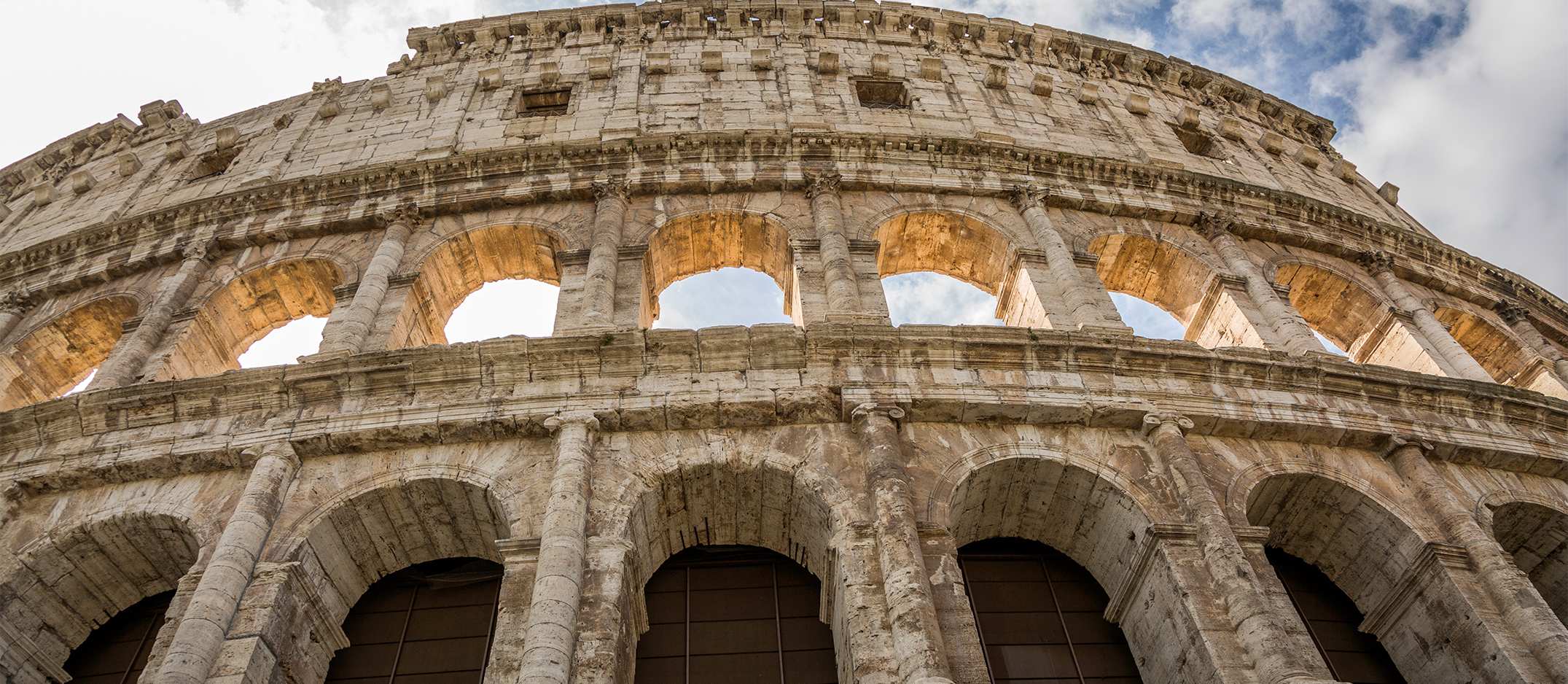ANCIENT HISTORY
Our Ancient History A Level course covers two ancient societies, the worlds of Greece and Rome, although it also touches on other ancient societies including the Persian Empire.
When studying Greek history, the focus is on the Greek world in the fifth-century BC, including three major conflicts: the Greco-Persian Wars and the First & Second Peloponnesian Wars. The course also explores the unique society and political system of ancient Sparta, in an attempt to understand why Sparta became the dominant military power in fifth-century Greece, despite having a relatively small population.
Studies into Roman history then concentrate on the first eleven emperors of Rome, the Julio-Claudian Emperors (Augustus, Tiberius, Caligula, Claudius & Nero), the civil wars of 68-69 AD (Galba, Otho and Vitellius) and the Flavian Dynasty (Vespasian, Titus & Domitian). This enables us to explore how the personalities of the powerful could leave their mark even on such a huge organisation as the Roman Empire.

More about the course
What Will I Study
Ancient History is the study of the political, military and social history of ancient Greece and ancient Rome, from which many of the concepts that shape the modern world were developed: imperialism, democracy, nationalism and the idea of the ‘state’. You will study the works of Greek and Roman historians such as Herodotus, Thucydides, Plutarch and Tacitus and archaeological evidence, such as coins, statues, buildings and inscriptions.
Our study of Ancient Greece starts with the causes and outcomes of the GrecoPersian Wars, which united the Greek world. We then study how this unity breaks up in the two Peloponnesian Wars between Athens and Sparta. In addition, you will investigate the society and politics of ancient Sparta, looking at how a state with no money, and one of the smallest populations in Greece, managed to become the most powerful and respected military force in Greece.
In the second year the focus is on Imperial Rome, starting with Augustus, the first Roman Emperor. We explore how Rome changed from a republic to an empire ruled by a single man. The men who succeeded Augustus further developed the Roman empire and we study these colourful characters, alongside their influential wives: Livia, Messalina and Agrippina.
Why choose Ancient History at KGV
We’re one of very few colleges in the UK to offer Ancient History and our course at KGV is one of the longest-established Ancient History courses in the North West. Over these years, we have won several awards from the Good Schools Guide for excellent teaching and consistently outstanding results. Many students have applied to read Ancient History at Oxford and other prestigious universities such as Durham, Warwick and St Andrew’s.
Every Ancient History student at KGV automatically receives a membership to the Lytham Classical Association, which means they can attend talks by leading historians, archaeologists and writers of historical fiction. The College also has excellent links with the Atkinson Museum, facilitating behind the scenes tours of exclusive exhibitions and helping students obtain work experience on archaeological digs.
Entry Requirements
Standard
5 GCSEs at grades 9 - 5 and or including, English Language and Maths at grade 4 or above.
Course Specific
You will need a grade 5 or above in English (literature or language)
Preparing for this course
The following documentaries will give you a great introduction to the subject
- Professor Mary Beard's documentary Ultimate Rome: Empire Without Limit
- Documentary on the ancient Greece narrated by Liam Neeson
- Professor Bettany Hughes' documentary The Spartans
Watch a variety of films set in ancient Greece and ancient Rome, including Gladiator and 300. Although not always entirely accurate, they will get you thinking about how people lived in ancient Greece and Rome. The TV series Rome is also well worth watching.
The most useful historical reading you can do is to read The Spartans by Paul Cartledge, who is the leading authority on Sparta – it’s full of interesting anecdotes and descriptions of Spartan kings and generals in this period.
We also suggest you read some historical novels set in ancient Greece or Ancient Rome – books by Simon Scarrow, Ben Kane, Madeline Miller, Lindsey Davis or Conn Iggulden are all great examples. Caroline Lawrence’s Roman Mysteries was written for teenagers but is still full of good research.
- There is also a MOOC on Hadrian's Wall